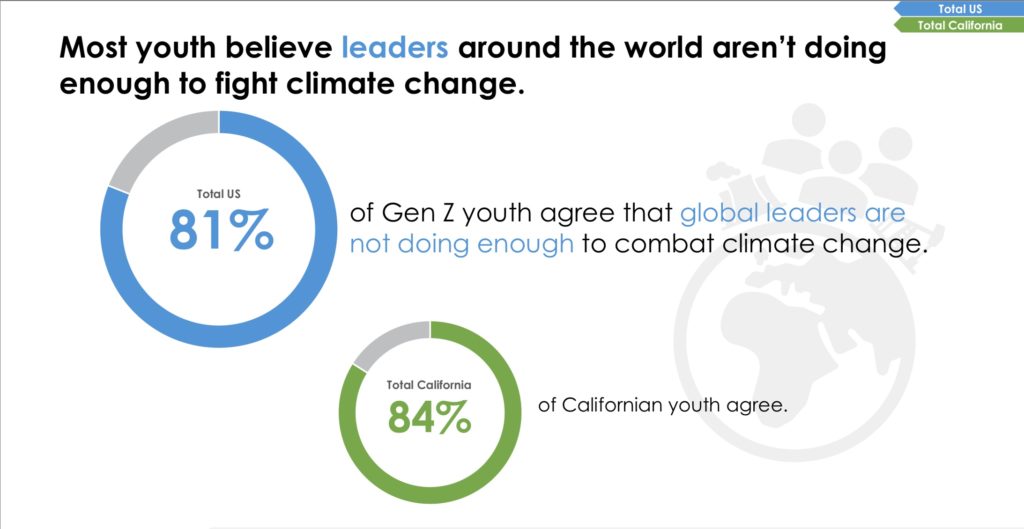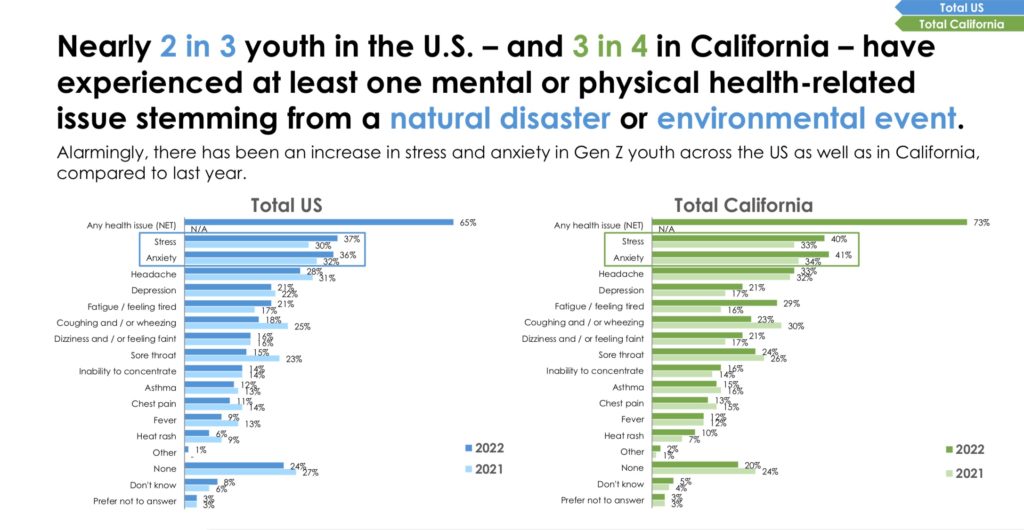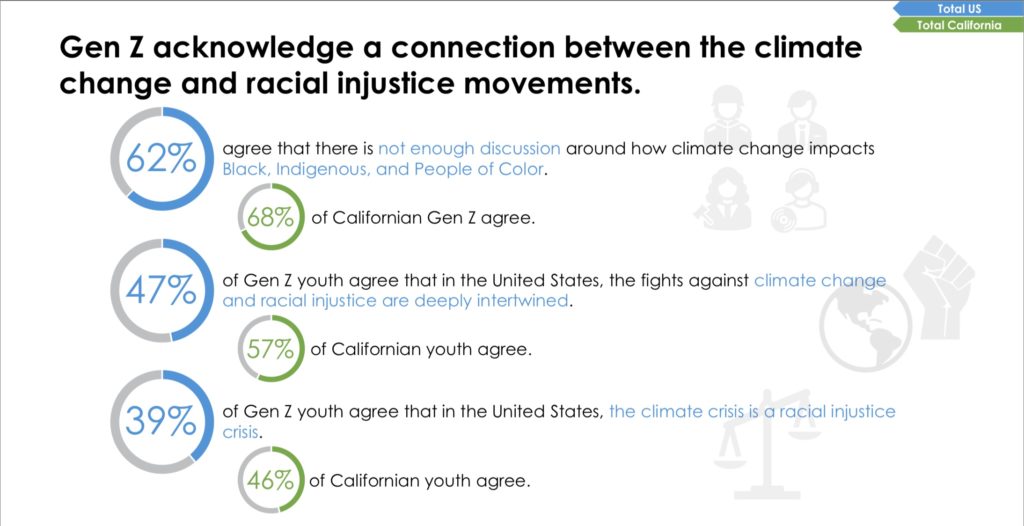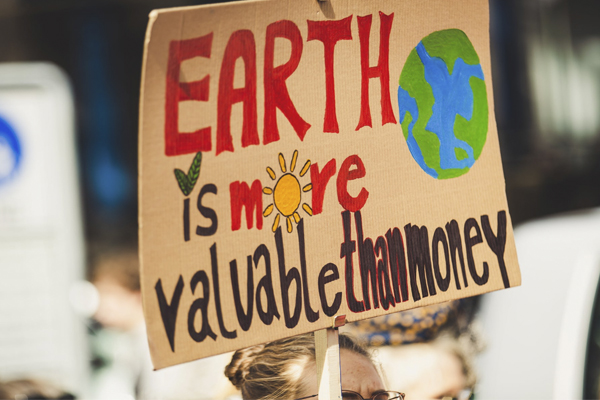The vast majority of US youth (81%) believe that global leaders are not doing enough to combat climate change, according to a recent Harris Poll of 14-24-year-olds nationwide, to mark Earth Day today.
Climate change is also taking a toll on Gen Z mental health, confirmed the NextGen Climate Survey, carried out by Blue Shield of California. A significant majority of Gen Z youth (75% nationwide) have experienced a mental health-related issue, such as anxiety, stress, and/or feelings of being overwhelmed as a result of reading, seeing, or hearing news about climate change.
Nearly two in three youth in the US (and three in four in California) have experienced at least one mental or physical health-related issue stemming from a natural disaster or environmental event. Alarmingly, there has been an increase in stress and anxiety in Gen Z youth across the US as well as in California, compared to last year.

Source: Blue Shield
CALLING ON LEADERS TO DO MORE
The majority of youth continue to express concern about several environmental issues, with pollution, loss of biodiversity, and deforestation topping the list. With regard to their own personal health, Gen Z are most concerned about air and water pollution, followed by chemicals and pesticides in food.
Younger generations are urging leaders to do more to combat climate change. Three quarters of youth (74%) believe that companies bear some responsibility to help people combat the impacts of climate change on their mental health. An overwhelming majority (85%) believe it is important to support brands/companies that are sustainable and/or environmentally friendly.

RACIAL INJUSTICE & CLIMATE CHANGE
Gen Z also acknowledges a connection between the climate change and racial injustice movements. Around 62% say that there is not enough discussion around how climate change impacts Black, Indigenous, and people of colour.
However, connection between social justice and climate change appears to be greatest among Black Gen Z. About half of Gen Z believe the fights against climate change and racial injustice are deeply intertwined. And, nearly half of Black youth say in the United States, the climate crisis is a racial injustice crisis – higher than other races/ethnicities, confirmed the survey. Black youth overwhelming agree that there is not enough discussion about how climate change impacts BIPOC.
Compared to other races, Asian youth are the most likely to report concern about the environment and climate change, whereas Black youth are the most likely to be concerned about racism and social justice as well as gun violence; while Hispanic youth are more likely to be concerned about immigration.

ENVIRONMENTAL CONCERNS
According to the National Institute of Environmental Health Sciences, climate change is a global health threat, brought on by the buildup of greenhouse gases in the atmosphere, that if left unchecked will increase the risks to human livelihood, especially vulnerable populations like children, the elderly, and those living in disadvantaged communities.
“Our warming planet, and all that comes with it, is literally putting lives at risk, so it’s no wonder that it’s also causing deep stress among our youth,” explained David Bond, director of Behavioral Health at Blue Shield of California. “Kids are resilient, but they also see what’s going on around them. Together, we need to be responsive to the effects of eco-anxiety by opening up a dialogue with our children and seeking professional treatment when appropriate.”
YOUTH TAKING ACTION
Despite these mental health challenges, four out of five youths (81% nationwide, 86% in California) say they have personally taken action to respond to climate change. Young people are stepping up to make a difference by relying less on plastic products (54%), reducing use of electricity (45%), and working to conserve water (38% nationwide, 53% in California).
“The studies are pretty conclusive in my mind – the planet is in serious trouble, and it looks like it will be up to my generation to take a stand on climate change,” said Joel Castro, 17, senior at Herbert Hoover High School in San Diego and President of his school’s Cesar Chavez Service Club. “My classmates, friends, and family are already taking steps to help heal the earth – like recycling, encouraging people to get out of their cars, taking part in community cleanups, and even advocating for policy change within our schools and communities. But we need more people to jump on board before it’s too late.”
Climate change “is an urgent public health crisis and addressing this challenge is a priority for Blue Shield,” highlighted Paul Markovich, President and CEO of Blue Shield of California. “That is why we are committed to becoming carbon negative by 2023 and zero waste by 2025. We are also quantifying the cost of climate change on our health and adopting and promoting climate-smart health care.”
You can check out the full survey here.








































